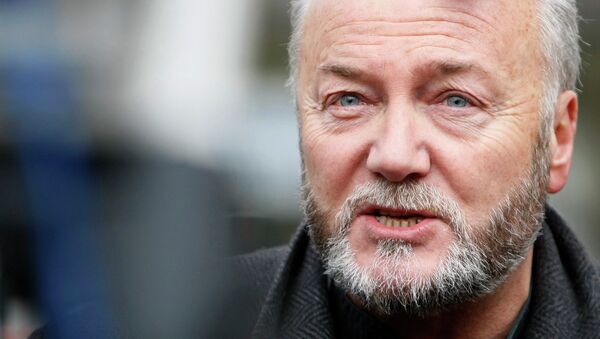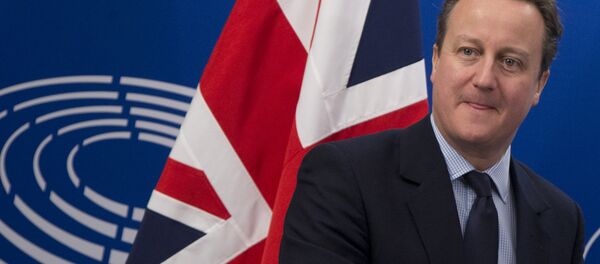European leaders convened in Brussels Thursday to negotiate measures to dissuade the United Kingdom from exiting the European Union. Conservative Prime Minister David Cameron has called for EU membership reforms that would grant more power to individual member states.
Despite the two-day emergency EU summit, political commentators still expect a UK exit from the 28-member political-economic union as early as this summer.
One of the most vocal of those commentators is MP George Galloway, also a candidate in the upcoming London mayoral contest slated for May 5. A member of the left-wing opposition Respect Party, he is an outspoken opponent of EU membership.
Galloway claims to be part of the "Lexit" coalition, a term for those who oppose continued EU membership by Britain on the basis of the social, economic, and anti-democratic implications of the union.
Although Galloway and those of the Lexit oppose what he describes as the "xenophobic and racist" arguments for an exit, noting the heated calls for excluding refugees and the growing concern for the EU’s open immigration stance, he nonetheless thinks "the end result will be the same."
Galloway attributed the growth of opposition to EU membership from the right as an issue of messaging: "It is easier to sell rightwing, xenophobic, anti-foreigner arguments than it is to sell principled, socialist, anti-imperialist arguments," he told Loud & Clear host Brian Becker.
George Galloway’s Arguments for EU Exit Unpacked
Galloway sees the EU membership agreement as wholly undemocratic. He argues that while "the British Foreign Minister may do bad things, […] at least he is elected by us and can be removed by us." By contrast, Galloway argues, the "European foreign minister is elected by no one and can be removed by no one," regardless of the views of a member state’s population toward hawkish EU foreign policy.
The mayoral candidate also finds issue with a growing strain of economic neo-liberalism regarding Britain’s public services and social safety net, and warns that it will get worse. Citing the Transatlantic Trade and Investment Partnership, presently being negotiated by the EU with the US and by which each EU member state would be bound, he argued that "American companies can bid to even take over our schools, our universities, this is madness." He further claims that the entirety of Britain’s health services will likely fall under US multinational corporate control if Britain remains in the EU.
In addition to "the dictatorship of the financial prevailing orthodoxy," strangling the democratic spirit of the British people, Galloway sounded an alarm regarding the EU’s growing militarization and aggressive foreign policy, which he says "mirrors the United States," referencing the political-economic union’s provocative posture towards Russia, the expansion of the Russian sanctions regime, and the EU’s expanded embroilment in Middle East affairs.
Does the Leading Opposition Labour Party Support Continued EU Membership?
Galloway says that while the Labour Party officially advocates for continued EU membership, he is not convinced they are speaking truthfully.
Calling Labour Party leader Jeremy Corbyn his "comrade for the last 40 years," Galloway questions the sincerity of Corbyn’s recent support for continued EU membership, saying "you certainly won’t hear any arguments [about remaining in the EU] enthusiastically deployed because he doesn’t believe it."
Instead, Galloway believes Corbyn has caved to political pressure in an attempt to keep the Labour Party united.
"Jeremy Corbyn, unfortunately, in my opinion, thought that he could appease" the opposition within his own Party, "by changing his stance on the European Union." Galloway further stated that he anticipates Labour conservatives will "pass a vote of no confidence in [Corbyn] as Leader of Her Majesty’s Opposition, which would mean the Labour Party then had two leaders and effectively became two parties."
The parliamentarian’s insights come at time when he consistently polls in third place in the upcoming London mayoral race, behind candidates for the Conservative and Labour Parties, respectively.




